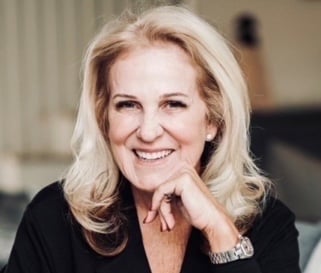It was a thrill and a privilege in 2006 when I was asked to lead Xceed Financial Credit Union (then Xerox Federal Credit Union). For more than 15 years, we navigated full-scale brand and cultural transformations, the Great Recession, seismic shifts in technology and consumer expectations, and more. Our strong capital position meant we could easily have continued operating for many years to come. Fortunately for Xceed’s members, our Board volunteers looked beyond the balance sheet to their moral commitment to members.
They saw a business environment that constrained growth and hampered the profitability needed to invest in our future, which in turn led us to conclude that continuing as an independent credit union would be possible, but would, over the long-term, have been a disservice to members.
We initiated the process of merging (ultimately with Kinecta Federal Credit Union, which I am now honored to serve as President) long before anyone had ever heard of Covid-19. However, the challenges and changes brought on by the pandemic have me more convinced than ever that credit union leaders need to abandon outdated notions about being “acquired” and embrace the strategic benefits of thoughtful, member-centric mergers.
Have you tallied up what this pandemic has cost your credit union?
I believe that what credit unions have done these past couple of years to protect our employees, be there for our members, and provide them with the relief and support they’ve needed throughout the pandemic have absolutely been the right things to do. But the fact is that all these things come at a cost, and many credit unions simply don’t have the scale to absorb those costs.
What about your digital platforms?
Many credit union leaders, who previously thought that massive investments in technology and training could wait or be measured out over time, were overwhelmed when lockdowns and member safety concerns accelerated consumers’ shift toward online and mobile banking almost overnight. It’s only gotten more urgent, as even those who were once tech newbies are now Zoom experts, and phenomenally successful tech-based brands like Amazon have heightened consumers’ expectations for immediacy, convenience, and seamless experiences.
We don’t know yet whether some aspects of pandemic life, work and business will “stick” over time, but I have no doubt that consumer expectations have been changed forever.
The stakes for credit unions that lag in digital transformation couldn’t be higher. For them, the decision of whether or not to merge isn’t so much a matter of pros and cons, but of surviving or not surviving.
Having spent my entire career in credit unions, I believe we are spot on with our commitment to values-based banking and to making a positive difference in our members’ lives. But like all of our pandemic-related efforts, that approach requires us to have the scale and resources to go toe-to-toe with the big banks and a multitude of new competitors. And being competitive is about more than the latest technology. It’s also about having the resources to provide compensation packages to attract talent and expand our teams with the deep expertise needed to compete effectively in the marketplace and offer members competitively priced products and services.
Having led a mid-sized credit union for many years, I appreciate that some credit union leaders are hesitant to give up their independence as stand-alone financial institutions. We care deeply for our members and their families. We know many of them personally, as individuals, and value their trust in us and our stewardship of their credit union.
Sadly, there are outdated and frankly harmful notions in our movement that merging amounts to a net loss rather than a gain for members. Especially given the external factors I’ve cited above, we simply must dispel the notion that being ‘acquired’ is somehow a prima facie negative or failure on the part of a credit union’s leaders.
The fact is it is our moral and fiduciary duty to the members we serve to face the world as it is—not how we might like it to be—and to make the bold, strategic decisions that are in their best interests. Sometimes that leads to a merger decision, which can be a tough call if you’ve been serving your credit union for decades. But good leaders have to be able to make tough calls and consult our moral compass when determining the best path forward for members.







